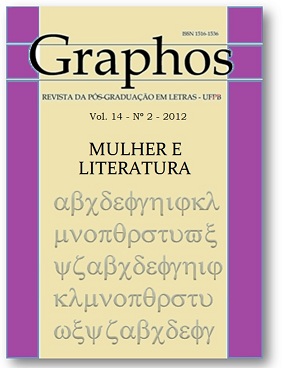African-women literature: a revolt writing
Keywords:
Gender, african-women, representation, claimAbstract
The objective of this paper is to show that the african-women narrative statements reject the idea of a passive discourse, setting up as a writing that opposes the “Other” place, reserved for black and female subject. Contrary to the hegemonic discourse, the writers expose discontent, anger, requiring, through their work, the right to use their voice to demand a place as an equal, in letters and in society. To think the malaise female african-sense transcript and become the body of the letter writing, one should point out the tools of analysis or theoretical possibilities of approaches: the proposal is considered as pillars, gender, race, uniqueness, imagination sociocultural, voice / silence, oppression, violence and subjectivity.
Downloads
References
ALVES, Miriam. Salve América. In: Cadernos Negros 25. São Paulo: Quilombhoje, 2002.
______. Estrelas nos dedos. São Paulo: Editora do Autor, 1985.
CONCEIÇÃO, Sonia Fátima da. Passado Histórico. In: Cadernos negros: melhores poemas. São Paulo: Quilombhoje, 1998.
EVARISTO, Conceição. 2008. Poemas da recordação e outros movimentos. Belo Horizonte: Nandyala, 2008.
HOOKS, B. Intelectuais Negras. Revista Estudos Feministas, V.3, nº 2 , 1995, p.454-478.
MARCUS, Jane. Art and Anger. Feminist studies, 4: 69-98, 1978
ORLANDI, Eni Pulcinelli. A linguagem e seu funcionamento. São Paulo: Brasiliense,
ROBIN, Régine. Lê deuil de l‘origine: une langue em trop, la langue em moins.Paris: Press Universitaires de Vicennes, 1993.
SECRETO, Cecília. Herencias femeninas: Nominalización del malestar. In Cristina Piña (Ed.), Mujeres que escriben sobre mujeres (que escriben) (pp. 151-200), Buenos Aires, Argentina: Biblos, 1997.
SPIVAK, Gayatri Chakravorty. Pode o subalterno falar? Tradução de Sandra Regina Goulart Almeida. Belo Horizonte: UFMG, 2010.







